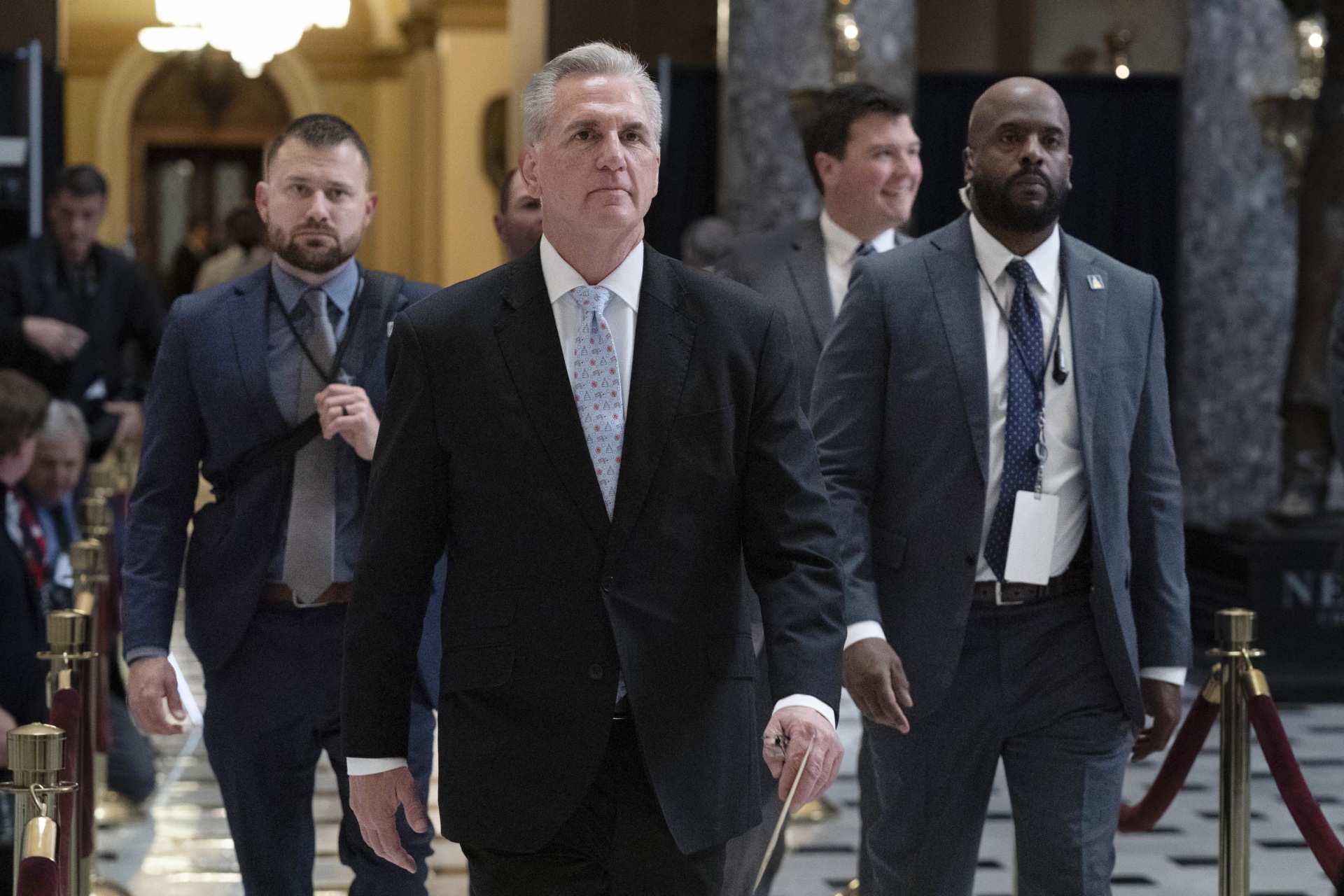Debt Ceiling Talks Begin Tomorrow
Speaker Kevin McCarthy is set to meet with President Joe Biden at the White House on Tuesday to start talks over the federal government’s spending, budget deficits, and debt level. Wall Street will likely be watching closely for hints about how likely it is that a deal to lift the government’s borrowing cap can be reached before the U.S. runs short of cash to pay some of its bills.
Under McCarthy’s leadership, House Republicans have already passed a bill to lift the limit on government borrowing for one year. The bill slows the pace of government spending going forward, putting what our friend Larry Kudlow describes as a “speed limit” on the growth of government expenditures. It would also pare back some of the Biden administration’s more reckless expansions of discretionary spending, such as the super-sizing of the Internal Revenue Service’s enforcement division and the creation of green-energy slush funds.
The GOP bill would also impose stricter work requirements for recipients of food stamps and Medicaid benefits, reforms that Republicans hope will ease the tightness of the labor market and encourage more people to return to the workforce. The bill also rescinds unspent pandemic relief funds, which would result in about $5o billion to $60 billion in savings.
Will the GOP Play Hardball?
The Republican theory is that reaching the debt limit is an opportunity to revisit past spending decisions that have pushed the nation’s budget over the cap lawmakers had previously agreed upon. When Biden’s 2021 American Rescue Plan (ARP) was passed, the country had not yet experienced our current flood-tide of inflation—in large part because it was the ARP that helped break the dike of price stability. Even when the so-called Inflation Reduction Act was passed last year, many economists believed inflation would begin to ebb far more quickly than it has. Changing policies when the facts turn out to be different from what was expected seems a pretty clear-minded position.
Speaking with our Alex Marlow on Breitbart News Daily Monday, Freedom Works Senior Economist Stephen Moore praised the passage of the GOP bill, saying that it made Speaker McCarthy “Time Magazine‘s ‘Man of the Year.” (Time Magazine, we believe, is a still published and once-respected weekly news periodical that at one time annually nominated important personages as “Man of the Year.”)

Speaker of the House Kevin McCarthy (R-CA) walks inside the Capitol in Washington, DC, on April 27, 2023. (AP Photo/Jose Luis Magana)
More importantly, Moore urged Republicans to hold fast against any resistance to their attempt to forge a combined spending reform and debt limit compromise.
“I’d play hardball with Biden and say, ‘Every week that goes by and you don’t come to the table with some kind of negotiation, we’re going to make our demands even stronger’ — because the American people are with the Republicans on this one and see the debt as a clear and present danger,” Moore said.
Biden’s Brinksmanship Still a Danger
The biggest risk to the debt cap not being lifted in time is the Biden administration’s refusal to negotiate over the debt limit directly. The president and his cabinet members have acted as if reaching a legislative compromise would be a violation of their principles, the Constitution, and perhaps even the divine order.
“Let’s get it straight,” Biden told a meeting of cabinet officials and other economic advisers on Friday, using the phrase that typically signals he is about to engage in a mind-melting level of reality-distortion. “They’re trying to hold the debt hostage to get us to agree to some draconian cuts, magnificently difficult and damaging cuts.”
Of course, all of the actual cuts proposed by the Republicans only pare back recent discretionary expansions, many of which have not really even gotten underway yet. There’s nothing “magnificently difficult” or “damaging” about repealing them.
The bigger point is that these do not sound like the words of a leader open to good faith negotiations. This is the rhetoric of a president who is willing to bring the government to the brink of running out of funds to pay bills.

COMMENTS
Please let us know if you're having issues with commenting.